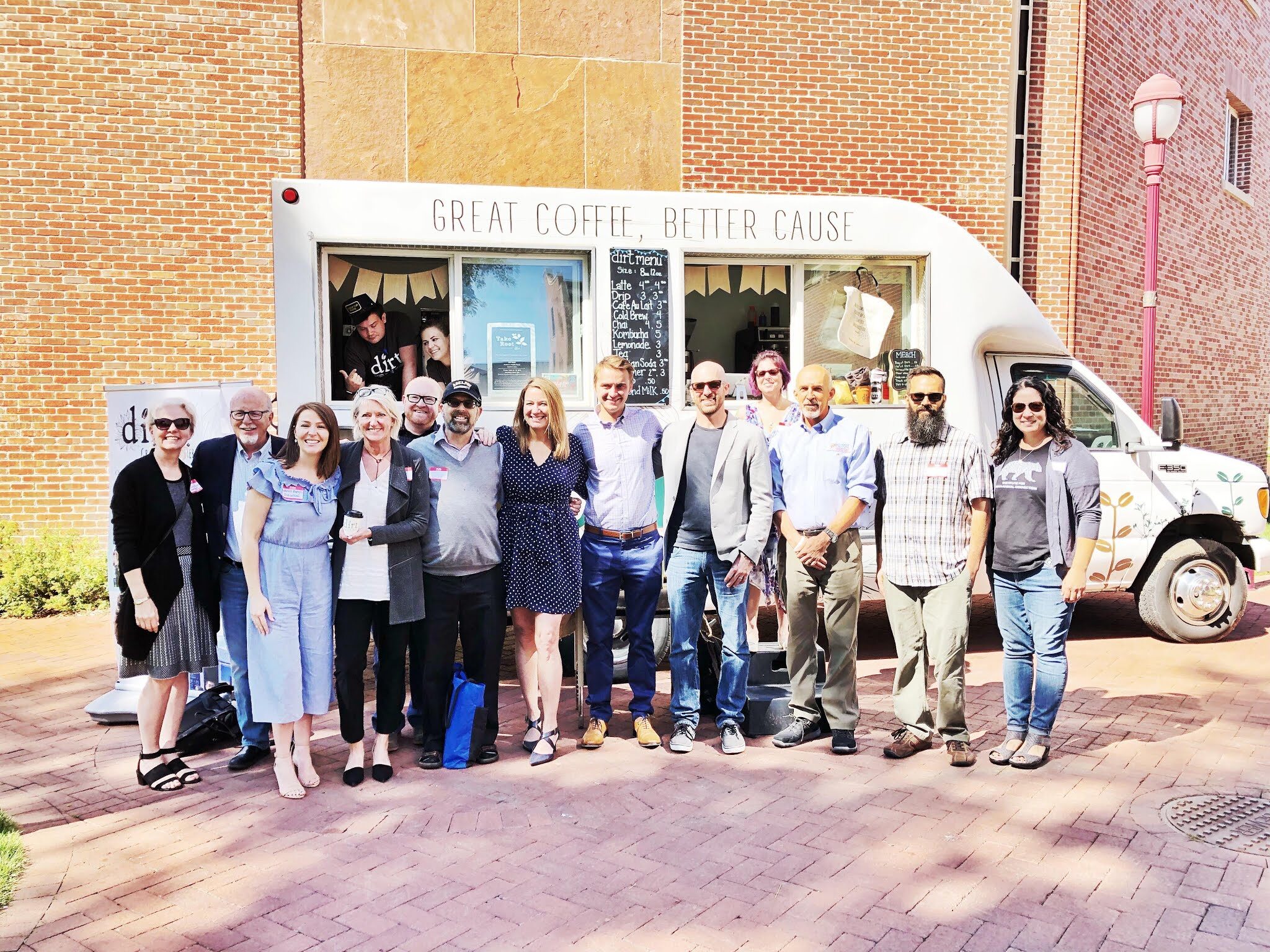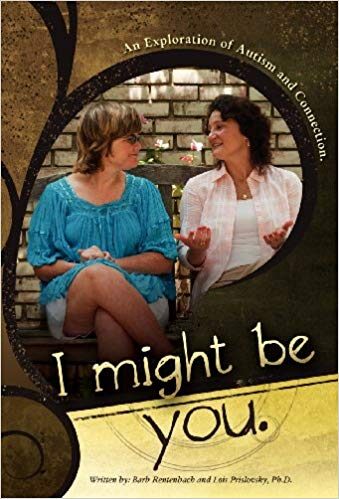[image: Book cover with a black background. At the top, large white text & then yellow text reads “Autistic Disturbances” then smaller yellow text reads, “Theorizing Autism Poetics from the DSM to Robinson Crusoe”. A large photo in the center features a storage rack with stacked cylinders, with different whimsical buttons on the lid of each cylinder White text below the graphic reads, “Julia Miele Rodas”. Smaller yellow text below reads, “Foreword by Melanie Yergeau”.] . Maxfield Sparrow unstrangemind.com Autistic Disturbances: Theorizing Autism Poetics from the DSM to Robinson Crusoe By Julia Miele Rodas, University of Michigan Press, 2018. “Autism has a particular language, one that has been extensively recognized, researched, and described by clinical theorists, literary scholars, and autism (self)advocates” Rodas writes in her groundbreaking book on Autistic poetics, Autistic Disturbances. Through discussing the features of Autistic voice and examining various novels, short stories, and even diagnostic literature through…
Tag: Maxfield Sparrow
“We miss something here. Developmental delay means that much life development happens in adult life for autistics, after age 18 or 21—maybe even more so than it does for us the rest of us.”
[image: Brown book cover. Small yellow text at the top reads, “Zachary Goldman Mysteries 2” Next, the title in white all caps text reads, “His Hands Were Quiet.” Next is an image of a yellow triangle with a silhouette of a person bending backwards and being struck in the chest with a bolt of electricity. Large yellow text at the bottom reads, “PD Workman”.] Maxfield Sparrow His Hands Were Quiet By P.D. Workman Content notes: suicide, abuse, murder, house fires, burn injuries, PTSD, Judge Rotenberg Center, ABA This book review gets all the Autistic trigger warnings. It is a gripping thriller/suspense novel that could help people understand autism and Autistic people better, and it is raw and honest about what some of the most vulnerable Autistic people endure. It will be a tense read for everyone and could be especially triggering for many Autistic people, so proceed carefully with this review and…
Maxfield Sparrow unstrangemind.com [image: cover of the book See It Feelingly, by Ralph Savarese] See It Feelingly: Classic Novels, Autistic Readers, and the Schooling of a No-Good English Professor (Thought in the Act) by Ralph James Savarese Foreword by Stephen Kuusisto Duke University Press Books (October 12, 2018) Reading See it Feelingly took me much longer than I expected, because I wanted to stop to take notes with almost every page turn. Dr. Savarese has produced a masterpiece, simultaneously dense and accessible. His voice moves freely—alternating among lyrical, narrative, and instructive—never losing the flow, never dipping into pedantry, never soaring too far toward the abstract for the reader to follow. Not only is this collection of essays brimming with the most important information and ideas about autism, it is a collaboration of rare beauty. See it Feelingly crosses genres effortlessly. The result is a book rich in the neuroscience of autism,…
Photo: Nancy Marie Davis | Flickr / Creative Commons [image: sepia-tone print of a clenched fist, with superimposed scratched lines.] Maxfield Sparrow unstrangemind.com A little over two years ago, Crystal Garrett wrote an article for Thinking Person’s Guide to Autism about the long-term traumatic effects on her Autistic son of the restraints and seclusion used against him at school. Garrett chose to end her career as a journalist to stay at home and school Zachary herself. Garrett wrote, “We know a restraint and seclusion free environment is realistic. Virginia-based Grafton Integrated Health Network, an organization that works with children and adults with autism and co-occurring psychiatric diagnoses, went restraint and seclusion free ten years ago. Since then, their client and staff injury rate has dramatically gone down, while employee satisfaction has increased. They are now teaching their system, Ukeru, to others across the country, in order to create a trauma-informed…
Photo courtesy Max Sparrow [image: Symposium organizers and presenters stand in front of the Dirt Coffee Truck while the Dirt workers smile from the left window of the truck. From left to right, the people pictured are: Dr. Elaine Meyer, Bill Morris, Lauren Burgess, Kris Harrington, Drew Webster, Dr. Stephen Shore, Dr. Kristie Koenig, Thomas Koenig, David Finch, Becca Lory Hector, Philip Tedeschi, Antonio Hector, Erica Elvove.] Maxfield Sparrow UnstrangeMind.com I am sitting in Dirt Coffee in Littleton, Colorado. Ryan, an outgoing young woman with enormous blue eyes, has served me a massive Americano to which I’ve added tons of cream. “Do you know about our mission?” she asks me. I do know the mission of Dirt Coffee, but I let her tell me anyway because I want the joy of hearing the words again. I discovered Dirt Coffee earlier today when I attended a symposium at the University of Denver’s…
[image: Cover of the book “I Might Be You,” showing two seating white women facing and engaging with each other.] Maxfield Sparrow unstrangemind.com I Might Be You: An Exploration of Autism and Connection (2012) By Barb Rentenbach and Lois Prislovsky; Audio version (2013) read by Lois Prislovsky PhD and Ariane Zurcher Neurodiversity: A Humorous and Practical Guide to Living with ADHD, Anxiety, Autism, Dyslexia, The Gays, and Everyone Else (2016) By Barb Rentenbach and Lois Prislovsky; Audio version (2016) read by Chad Dougatz, Lois Prislovsky PhD, Carol Riggs Holloway, John Bond, and Jery Yarber I read “I Might Be You” in 2014 and loved it, but never thought to review it back then. When I discovered that Barb Rentenbach and Lois Prislovsky had a second book out, I got it in an Audible version and, on a whim, decided to get the Audible version of “I Might Be You” as well, and…
Anyone who cares about the fate of Autistics in the justice system in general or Darius McCollum’s case specifically should watch this film.
Photo © NASA Goddard Space Flight Center | Flickr / Creative Commons [image: Photo of two neutron stars ripping each other apart.] Maxfield Sparrow unstrangemind.com Sometimes when I’m talking with someone about autism it feels like we’re talking about two different things. For example, I’ve had countless conversations that go something like this: “You’re nothing like my child. My child has the serious kind of autism,” they might open with. “Autism is serious stuff,” I respond. “It’s important to take it seriously.” “No, I mean my child has the autism with digestive stuff and physical involvement. The severe autism.” “I have intermittent gastroparesis that has sent me to the hospital multiple times. I have a connective tissue disorder that has caused pelvic organ prolapse. These things aren’t autism.” And it’s the truth: the co-occurring conditions we cope with are not autism; they are the “genetic hitchhikers” that love to travel…
Maxfield Sparrow unstrangemind.com Photo © 2017, Maxfield Sparrow [image description: a turtle in the middle of the road on a hot, sunny day. His skin is dark with bright yellow stripes and his shell is ornate, covered with swirls of dark brown against a honey-yellow background. The turtle is rushing to get across the street and his back leg is extended from the speed and force of his dash toward freedom.] I hate meltdowns. I hate the way they take over my entire body. I hate the sick way I feel during a meltdown and I hate the long recovery time—sometimes minutes, but just as often entire days—afterward, when everything is too intense, and I am overwhelmed and exhausted and have to put my life on hold while I recover. I hate the embarrassment that comes from a meltdown in front of others. I hate the fear that bubbles up…






